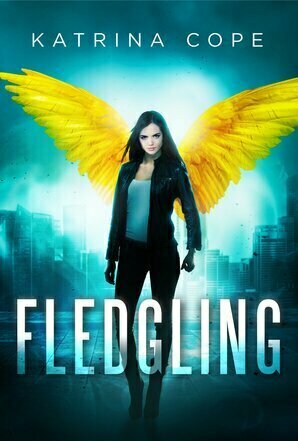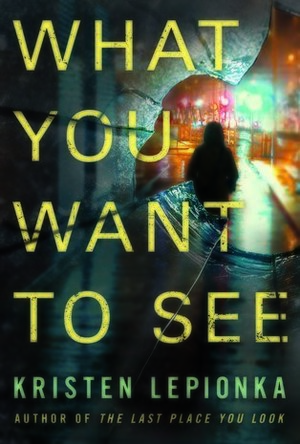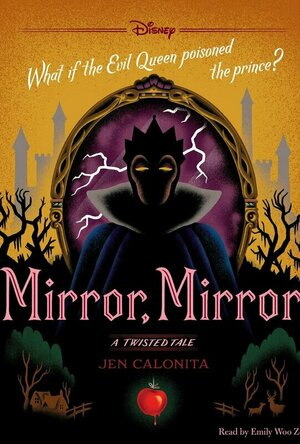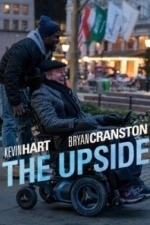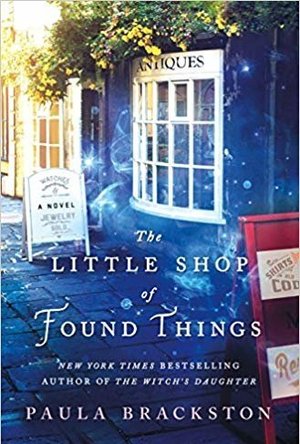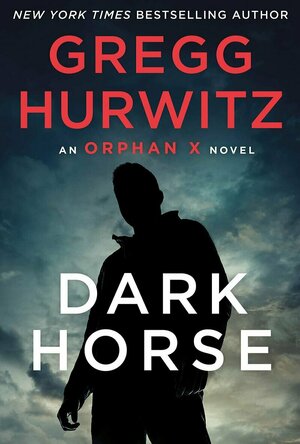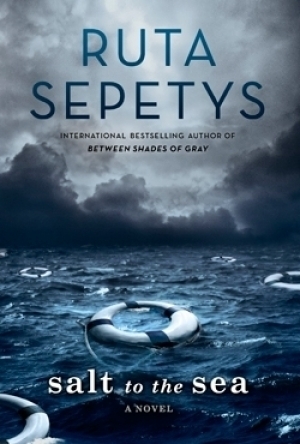Search
Phil Leader (619 KP) rated Fledgling (Afterlife #1) in Books
Nov 13, 2019
With the increasing population and growing evils of the world, the guardian angels are struggling to keep up and have started to recruit human souls to be angels. Those that meet the criteria are then trained to fight evil - quite literally.
The heroine of the story (unnamed for very nearly half the book) is one such recruit, She is sent on missions to protect innocent souls from evil people and to insert a conscience into their attackers so they will change their ways. But the new angel is worried about the side effects of the new conscience and this causes her to break the rules and to question if what the archangels have taught is correct.
Despite the premise, this book is neither religious nor do the angels behave exactly as guardian angels are traditionally supposed to. They are more like an angelic version of Thunderbirds as they are despatched from their secret island base around the planet to protect those in trouble. And they don't fight evil with a kind word and good deeds, these angels are trained in martial arts and are very much not afraid to use it.
This book reminded me most of a computer game where each mission granted new powers, but also the end of level opponent gets tougher. Every chapter raises the thrill another notch and the fight scenes are very impressively written and choreographed. It is like The Matrix with angels.
The characters are well written. The angels - both the new recruits and the archangels - are well formed and each has their strengths and weaknesses and are certainly not in any way perfect. The heroine in particular is someone the reader can empathise with as she struggles with the dilemmas of her new life (and her old human one). Some pages I didn't want to turn as it was clear that something unpleasant was going to happen to her. But with the help of her friends and their combined strengths they win through.
Given that the main character is female angel and that there is a romantic sub plot this might not appeal to teenage males but that would be overlooking a terrific book for a very superficial reason. The tale of a feisty angel who always does what she believes is right is ultimately a good read for anybody.
The heroine of the story (unnamed for very nearly half the book) is one such recruit, She is sent on missions to protect innocent souls from evil people and to insert a conscience into their attackers so they will change their ways. But the new angel is worried about the side effects of the new conscience and this causes her to break the rules and to question if what the archangels have taught is correct.
Despite the premise, this book is neither religious nor do the angels behave exactly as guardian angels are traditionally supposed to. They are more like an angelic version of Thunderbirds as they are despatched from their secret island base around the planet to protect those in trouble. And they don't fight evil with a kind word and good deeds, these angels are trained in martial arts and are very much not afraid to use it.
This book reminded me most of a computer game where each mission granted new powers, but also the end of level opponent gets tougher. Every chapter raises the thrill another notch and the fight scenes are very impressively written and choreographed. It is like The Matrix with angels.
The characters are well written. The angels - both the new recruits and the archangels - are well formed and each has their strengths and weaknesses and are certainly not in any way perfect. The heroine in particular is someone the reader can empathise with as she struggles with the dilemmas of her new life (and her old human one). Some pages I didn't want to turn as it was clear that something unpleasant was going to happen to her. But with the help of her friends and their combined strengths they win through.
Given that the main character is female angel and that there is a romantic sub plot this might not appeal to teenage males but that would be overlooking a terrific book for a very superficial reason. The tale of a feisty angel who always does what she believes is right is ultimately a good read for anybody.
Kristy H (1252 KP) rated What You Want To See (Roxane Weary #2) in Books
May 10, 2018
The Roxane Weary mystery series is straight-up great!
Roxane Weary is hired by Arthur Ungless, owner of a print shop, to track his fiance, Marin, whom he believes is cheating on him. But her case devolves quickly, between a bounced check and Tom (Roxane's dad's former partner) and a rude cop named Sanko showing up on Roxane's doorstep with the news that Marin is dead. Not only that, they make it pretty clear that they want Roxane to stay out of it. But this is "pathologically nosy" Roxane we are talking about. Stay out of it she cannot. So Roxane continues to work Arthur's case--as the husband, he's the main suspect after all. Roxane is determined he's innocent: a perspective not shared by Tom and Sanko. As she digs deeper into Marin's life, she discovers that she led quite the double life, and Roxane finds herself lost in a world of antiques dealing, wealthy families, and a lot of danger.
I loved this book. I love the first person aspect. The Roxane Weary series is straight-up great mystery writing. No unreliable narrator, no chapters that alternate POV or time periods, no gimmicks--just an excellent protagonist and a strong plot. It makes you long for mysteries of old (think Kinsey Millhone). The ways I love Roxane cannot truly be enumerated--she's a female lead in a mystery series, for one. She's smart, witty, and sarcastic. She's bisexual, but this characteristic is just who she is, not her main defining element or the entire defining point of the novel. As a bisexual female, I cannot stress how amazing this is in literature. To have bisexual representation (and have that representation be intelligent, funny, and not portrayed as evil and deviant), well, it's wonderful. She has relationships of all kinds and works on figuring out herself, just like any other person. Gasp! Imagine that. I couldn't love Roxane more (or Kristen Lepionka for creating this character). Also, Roxane calls waffles "golden beauty" and well, what more do you need in your PI? She's the Leslie Knope of private investigators.
I was worried that the second Roxane Weary novel wouldn't stand up to the first, but I was anxious for no reason. The second book is just as wonderful and intricately crafted as the first, and we get to see Roxane both struggling and growing professionally and personally. The case is a great one--it had me frantically reading and totally shocked me at the end, which I love. So rarely can a detective novel keep me guessing to the anymore. Marin Strasser is quite the character, and her web of lies pulls in a whole host of supporting characters.
We also see Roxane navigating new territory with Tom, her former lover (and, as mentioned, her dad's ex-partner), and get appearances again from the appealing Weary brothers and Roxane's mom. Roxane is still working on her relationships--not just romantic ones, but life ones, and you'll be touched as she figures out trying to be a "surrogate aunt" to Shelby, who appeared in book one. Watching her let her guard down at times is enjoyable.
The case is still mainly the star, though, and it won't disappoint. It's complicated and intriguing and everything comes together in ways that will make you gasp and keep you riveted. I was definitely shocked several times while reading. Not to mention I love it when an author can write a character that I truly hate--you know they've done a good job when you can feel that anger viscerally through the pages!
Overall, I have nothing bad to say about this book. Maybe that it's over, and I have to wait now for a (hopeful!!) book three? I love Roxane. I feel kinship toward her for sure, this sarcastic, bisexual PI whose still navigating the world around her. The mystery in this book won't disappoint, nor will the characters. If you haven't read the first Roxane Weary novel, I do recommend reading it first (mostly because it's also so good), but this will stand on its own. Highly recommend!!
I received a copy of this novel from the publisher and Netgalley in return for an unbiased review. More at http://justacatandabookatherside.blogspot.com/.
I loved this book. I love the first person aspect. The Roxane Weary series is straight-up great mystery writing. No unreliable narrator, no chapters that alternate POV or time periods, no gimmicks--just an excellent protagonist and a strong plot. It makes you long for mysteries of old (think Kinsey Millhone). The ways I love Roxane cannot truly be enumerated--she's a female lead in a mystery series, for one. She's smart, witty, and sarcastic. She's bisexual, but this characteristic is just who she is, not her main defining element or the entire defining point of the novel. As a bisexual female, I cannot stress how amazing this is in literature. To have bisexual representation (and have that representation be intelligent, funny, and not portrayed as evil and deviant), well, it's wonderful. She has relationships of all kinds and works on figuring out herself, just like any other person. Gasp! Imagine that. I couldn't love Roxane more (or Kristen Lepionka for creating this character). Also, Roxane calls waffles "golden beauty" and well, what more do you need in your PI? She's the Leslie Knope of private investigators.
I was worried that the second Roxane Weary novel wouldn't stand up to the first, but I was anxious for no reason. The second book is just as wonderful and intricately crafted as the first, and we get to see Roxane both struggling and growing professionally and personally. The case is a great one--it had me frantically reading and totally shocked me at the end, which I love. So rarely can a detective novel keep me guessing to the anymore. Marin Strasser is quite the character, and her web of lies pulls in a whole host of supporting characters.
We also see Roxane navigating new territory with Tom, her former lover (and, as mentioned, her dad's ex-partner), and get appearances again from the appealing Weary brothers and Roxane's mom. Roxane is still working on her relationships--not just romantic ones, but life ones, and you'll be touched as she figures out trying to be a "surrogate aunt" to Shelby, who appeared in book one. Watching her let her guard down at times is enjoyable.
The case is still mainly the star, though, and it won't disappoint. It's complicated and intriguing and everything comes together in ways that will make you gasp and keep you riveted. I was definitely shocked several times while reading. Not to mention I love it when an author can write a character that I truly hate--you know they've done a good job when you can feel that anger viscerally through the pages!
Overall, I have nothing bad to say about this book. Maybe that it's over, and I have to wait now for a (hopeful!!) book three? I love Roxane. I feel kinship toward her for sure, this sarcastic, bisexual PI whose still navigating the world around her. The mystery in this book won't disappoint, nor will the characters. If you haven't read the first Roxane Weary novel, I do recommend reading it first (mostly because it's also so good), but this will stand on its own. Highly recommend!!
I received a copy of this novel from the publisher and Netgalley in return for an unbiased review. More at http://justacatandabookatherside.blogspot.com/.
LeftSideCut (3776 KP) rated Hellraiser III: Hell on Earth (1992) in Movies
Jan 8, 2022
Hellraiser III is undoubtedly an odd beast. It feels so out of touch with the genuinely fantastic first two films, to the point where it should be a massive shot in the foot, but somehow, it's ludicrously entertaining.
The big and obvious potential for error is the series' infamous antagonist/anti-hero Pinhead. I say anti-hero because the first two films don't portray him as a flat out villain. He's rather, an indifferent creature, who acts with some sort of honour. Hell on Earth just goes full blown bad guy, aligning him more accurately with slasher villains of the 80s. It's proves to be a hinderence in execution, replacing the mysterious and sparingly shown Pinhead of before with one that throws out an evil cackle whilst slaughtering his victims, and even provides a couple of quips. He gets some cool lines here and there but it leans too heavily into occasionally goofy over-exposure.
The other cenobites that surround him are kind of lame this time around as well, even if there's a weird enjoyment in watching one of them slice up innocent bystanders by throwing CDs at their faces.
The story kind of makes sense, and it's commitment to staying connected to the previous films is commendable, but it does completely fall off the rails near the end. It doesn't help that the editing is so jarring between scenes.
In spite of these issues, the overall experience is a lot of fun. It lacks the subtlety and borderline arthouse style that really set the first two apart, but it still kind of works. It's not ideal, but intriguing, kind of like an oddball cousin that might visit now and again.
The big and obvious potential for error is the series' infamous antagonist/anti-hero Pinhead. I say anti-hero because the first two films don't portray him as a flat out villain. He's rather, an indifferent creature, who acts with some sort of honour. Hell on Earth just goes full blown bad guy, aligning him more accurately with slasher villains of the 80s. It's proves to be a hinderence in execution, replacing the mysterious and sparingly shown Pinhead of before with one that throws out an evil cackle whilst slaughtering his victims, and even provides a couple of quips. He gets some cool lines here and there but it leans too heavily into occasionally goofy over-exposure.
The other cenobites that surround him are kind of lame this time around as well, even if there's a weird enjoyment in watching one of them slice up innocent bystanders by throwing CDs at their faces.
The story kind of makes sense, and it's commitment to staying connected to the previous films is commendable, but it does completely fall off the rails near the end. It doesn't help that the editing is so jarring between scenes.
In spite of these issues, the overall experience is a lot of fun. It lacks the subtlety and borderline arthouse style that really set the first two apart, but it still kind of works. It's not ideal, but intriguing, kind of like an oddball cousin that might visit now and again.
Lottie disney bookworm (1056 KP) rated Mirror, Mirror in Books
Aug 16, 2019
Review by Disney Bookworm
Contains spoilers, click to show
If I’m honest I initially thought the tagline to this Snow White twisted tale novel was a massive plot spoiler but, when you are 300 pages into a book and no-one has eaten a poisoned apple, it may be the ideal opportunity to admit you were wrong. This book is not that simple!
Mirror, Mirror explores the traditional Grimm fairy tale of Snow White through the eyes of the two main characters: the Evil Queen and Snow White herself. The reader is completely under the control of these two women: finding themselves with no choice but to witness the familiar story from their perspective.
Jen Calonita’s novel is also heavily built on story telling through flashbacks. In my opinion, this is a genius idea as it provides an undeniable depth to her characters. Let’s be honest, everyone knows the story of Snow White but not everyone knows the story before Snow White and it is here where the twisted tale evolves.
Through these flashbacks we meet Katherine and Ingrid: two sisters whom have lost their mother and are being raised by their neglectful, sometimes violent, father. As a result of their upbringing, Ingrid, the elder sister, has adopted a motherly role towards her younger sister Katherine and strives to protect the innocent girl at all times. They leave home, finding work on a farm where Katherine finds her passion within the apple orchard, cultivating a new variety of apple which will later attract the attention of the King.
Ingrid however, always wants more than what she has. Older and more aware of the hardship life can bring, Ingrid is not as sweet and innocent as her sister: people do not dote on Ingrid as they do Katherine and eventually Ingrid finds that she cannot settle for a simple life- instead opting for a job in a small shop known for its association with dark magic and the home of a certain mirror.
You may have guessed by now that Ingrid is, in fact, the Evil Queen and her sister Katherine is Snow White’s mother! I know what you are thinking, I have just described how protective Ingrid was of the future Queen: surely she wouldn’t “off” her own sister and try to collect her niece’s heart in a box?
This is where the complexity of Ingrid’s character really shines through and where, (if hats suited me) I will take my hat off to Jen Calonita. Mirror Mirror takes you on a journey with Ingrid. You experience her love for her sister first-hand as well as her frustration with her sheltered life but later you also witness her lust for power and how easily Ingrid’s choices lead her down the wrong path.
I also believe that Ingrid is truly scarred by her past. She sneers upon her sister’s kindness and villainises Katherine for letting a man, and later her baby, come between them. Ingrid views herself as wiser and more intelligent than her little sister: believing that she would certainly rule the Kingdom more efficiently and not stopping until this becomes a reality.
Despite being a formidable woman, Ingrid is not devoid of vulnerabilities and, as the story progresses, the readers will witness Ingrid’s ghosts and note how one in particular never leaves her until the very end.
Of course, Ingrid’s enabler is the magic mirror. Calonita paints a picture of a mirror identical to the one we remember from the Disney 1938 classic animated film with a haunting mask dominating and manipulating The Evil Queen with every chance it gets.
The mirror creates an obsession and dependence within Ingrid that is chillingly portrayed. It is undoubtedly the real villain of the story: demanding blood from the start and weakening Ingrid until she cleaves to its will. However, we all know who is standing between the mirror and its plans for domination and undisputed power: the princess Snow White.
In the past, I have made no secret of the fact that Snow is my least favourite Disney princess. Her voice in the film grated on me and I just genuinely found her irritating. Thankfully Calonita’s Snow White is more akin to the ‘Once Upon A Time’ interpretation and so much easier to form a relationship with as a reader.
While fulfilling our expectations of being kind, innocent and prone to falling in love with conveniently handsome Princes: Mirror Mirror’s Snow White is bolder than we are used to and, as her story progresses, becomes more confident in herself as the heir to the kingdom. Her priorities are more political in nature, with a strong focus on rebuilding her kingdom and her bravery shines through almost from the very beginning. Snow does encounter challenges and dark thoughts as any person does but earns her Disney princess badge by helping true love to save the day!
Similarly, the seven dwarves are not as one-dimensional as the classic movie. They assist the Princess of course and shelter her in the forest but they also seem more street-wise (or should that be forest-wise?), squirreling away diamonds for bartering and mustering armies for Snow’s cause. There isn’t too much focus on the seven men in Mirror Mirror but I don’t think that the book is necessarily missing this. I think the characters are so well-known that too much character development would stray away from the main plot.
Mirror, Mirror is a modern adaptation of the familiar fairytale: centring itself around two very strong women in their own right but polar opposites in terms of their characters and choices in life.
The novel makes several nods to the iconic images formed in 1938 by Walt Disney such as the apple, the glass coffin and, of course, the seven dwarves. However, the recurring theme of choosing your own story and the complex backgrounds to her characters cause Jen Calonita’s novel to stand out on its own.
It may not have been the traditional “happy ever after” but this adaptation of Snow White was, in my opinion, the “fairest of them all”.
Written by The Disney Bookworm:
https://disneybookworm.home.blog
Mirror, Mirror explores the traditional Grimm fairy tale of Snow White through the eyes of the two main characters: the Evil Queen and Snow White herself. The reader is completely under the control of these two women: finding themselves with no choice but to witness the familiar story from their perspective.
Jen Calonita’s novel is also heavily built on story telling through flashbacks. In my opinion, this is a genius idea as it provides an undeniable depth to her characters. Let’s be honest, everyone knows the story of Snow White but not everyone knows the story before Snow White and it is here where the twisted tale evolves.
Through these flashbacks we meet Katherine and Ingrid: two sisters whom have lost their mother and are being raised by their neglectful, sometimes violent, father. As a result of their upbringing, Ingrid, the elder sister, has adopted a motherly role towards her younger sister Katherine and strives to protect the innocent girl at all times. They leave home, finding work on a farm where Katherine finds her passion within the apple orchard, cultivating a new variety of apple which will later attract the attention of the King.
Ingrid however, always wants more than what she has. Older and more aware of the hardship life can bring, Ingrid is not as sweet and innocent as her sister: people do not dote on Ingrid as they do Katherine and eventually Ingrid finds that she cannot settle for a simple life- instead opting for a job in a small shop known for its association with dark magic and the home of a certain mirror.
You may have guessed by now that Ingrid is, in fact, the Evil Queen and her sister Katherine is Snow White’s mother! I know what you are thinking, I have just described how protective Ingrid was of the future Queen: surely she wouldn’t “off” her own sister and try to collect her niece’s heart in a box?
This is where the complexity of Ingrid’s character really shines through and where, (if hats suited me) I will take my hat off to Jen Calonita. Mirror Mirror takes you on a journey with Ingrid. You experience her love for her sister first-hand as well as her frustration with her sheltered life but later you also witness her lust for power and how easily Ingrid’s choices lead her down the wrong path.
I also believe that Ingrid is truly scarred by her past. She sneers upon her sister’s kindness and villainises Katherine for letting a man, and later her baby, come between them. Ingrid views herself as wiser and more intelligent than her little sister: believing that she would certainly rule the Kingdom more efficiently and not stopping until this becomes a reality.
Despite being a formidable woman, Ingrid is not devoid of vulnerabilities and, as the story progresses, the readers will witness Ingrid’s ghosts and note how one in particular never leaves her until the very end.
Of course, Ingrid’s enabler is the magic mirror. Calonita paints a picture of a mirror identical to the one we remember from the Disney 1938 classic animated film with a haunting mask dominating and manipulating The Evil Queen with every chance it gets.
The mirror creates an obsession and dependence within Ingrid that is chillingly portrayed. It is undoubtedly the real villain of the story: demanding blood from the start and weakening Ingrid until she cleaves to its will. However, we all know who is standing between the mirror and its plans for domination and undisputed power: the princess Snow White.
In the past, I have made no secret of the fact that Snow is my least favourite Disney princess. Her voice in the film grated on me and I just genuinely found her irritating. Thankfully Calonita’s Snow White is more akin to the ‘Once Upon A Time’ interpretation and so much easier to form a relationship with as a reader.
While fulfilling our expectations of being kind, innocent and prone to falling in love with conveniently handsome Princes: Mirror Mirror’s Snow White is bolder than we are used to and, as her story progresses, becomes more confident in herself as the heir to the kingdom. Her priorities are more political in nature, with a strong focus on rebuilding her kingdom and her bravery shines through almost from the very beginning. Snow does encounter challenges and dark thoughts as any person does but earns her Disney princess badge by helping true love to save the day!
Similarly, the seven dwarves are not as one-dimensional as the classic movie. They assist the Princess of course and shelter her in the forest but they also seem more street-wise (or should that be forest-wise?), squirreling away diamonds for bartering and mustering armies for Snow’s cause. There isn’t too much focus on the seven men in Mirror Mirror but I don’t think that the book is necessarily missing this. I think the characters are so well-known that too much character development would stray away from the main plot.
Mirror, Mirror is a modern adaptation of the familiar fairytale: centring itself around two very strong women in their own right but polar opposites in terms of their characters and choices in life.
The novel makes several nods to the iconic images formed in 1938 by Walt Disney such as the apple, the glass coffin and, of course, the seven dwarves. However, the recurring theme of choosing your own story and the complex backgrounds to her characters cause Jen Calonita’s novel to stand out on its own.
It may not have been the traditional “happy ever after” but this adaptation of Snow White was, in my opinion, the “fairest of them all”.
Written by The Disney Bookworm:
https://disneybookworm.home.blog
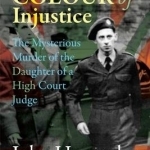
The Colour of Injustice: The Mysterious Murder of the Daughter of a High Court Judge
Book
Based on actual (sometimes exclusive) materials, The Colour of Injustice raises questions about...
Natasha Khan recommended Post by Bjork in Music (curated)
Bob Mann (459 KP) rated The Upside (2019) in Movies
Sep 28, 2021
Not the 5* French classic, but a fun and moving movie nonetheless.
So, the movie-going audience for this film will divide into two categories:
Category A: those that have seen the original 2011 French classic “The Intouchables” that this is based on, and;
Category B: those that haven’t.
2011 is just before I started “One Mann’s Movies”, but “The Intouchables” would have got 5* from me, no problem.
This movie joins a list of standout European movies – for example, “The Girl with the Dragon Tattoo”; “Let The Right One In”; “Sleepless Night”; etc. – that have had Hollywood “makeovers” that don’t match up to the originals. And this is no exception. However, it’s still been well made and deserves respect as a standalone piece of movie-making.
The Plot
Based on a true story, Phillip Lacasse (Bryan Cranston) is left both paraplegic and widowed by a string of bad luck. Not that money can buy you everything, but his care arrangements are substantially helped by him being a multi-millionaire (“Not rich enough to buy The Yankees; Rich enough to buy The Mets”). This is from success in investments and writing about such investments.
Depressed, cranky and with a “DNR” that his diligent PA Yvonne (Nicole Kidman) seems unable to comply with, Phillip lashes out at anyone and everyone and so dispatches his carers with monotonous regularity. Dell Scott (Kevin Hart) is on parole, with the requirement to seek work. Due to a mix-up, he finds himself in the employ of Phillip: with the suspicion that he’s been hired because he is the very worst candidate imaginable, and thus the most likely to let Phillip shuffle off this mortal coil. But the two men’s antipathy to each other slowly thaws as they teach each other new tricks.
Pin left in the grenade
Those who have seen “The Intouchables” will fondly remember the first 5 minutes of that film: a flash-forward to a manic police car-chase featuring our protagonists (there played by François Cluzet and Omar Sy). It drops like a comedy hand-grenade to open the film. Unfortunately, you can’t help but feel a bit let down by the same re-creation in “The Upside”. It has all the same content but none of the heart.
After that rocky start, the film continues to rather stutter along. Part of the reason for this I think is Kevin Hart. It’s not that he’s particularly bad in the role: it’s just that he IS Kevin Hart, and I was constantly thinking “there’s that comedian playing that role”.
However, once the story gets into its swing, giving Cranston more of a chance to shine (which he does), then the film started to motor and my reservations about Hart started to wane. Some of these story set pieces – such as the one about the art work – are punch-the-air funny in their own right. Cranston’s timing in delivering his punchlines is immaculate.
This IS what actors do
There seems to have been some furore about the casting of Bryan Cranston as the role of the disabled millionaire instead of a disabled actor. Lord save us! He’s an actor! That’s what actors do for a living: pretend to be people they’re not! It’s also worth pointing out that François Cluzet was an able-bodied actor as well.
As already mentioned, Bryan Cranston excels in the role. Phillip goes through such a wide range of emotions from despair to pure joy and back again that you can’t help but be impressed by the performance.
On the female side of the cast, it’s really nice to see Nicole Kidman in such a quiet and understated role and it’s nicely done; Aja Naomi King does a nice job as Dell’s protective ex-girlfriend Latrice; and there’s a nice female cameo as well, which I won’t spoil since I wasn’t expecting to see her in the film.
Final Thoughts
As a standalone film it has some laugh-out-loud moments, some feelgood highs and some moments of real pathos. The audience I saw this with was small, but there was still a buzz in the room and sporadic applause as the end titles came up: God only knows that’s unusual for a film!
The director is “Limitless” and “Divergent” director Neil Burger, and it’s a perfectly fun and innocent night out at the flicks that I commend to the house in this month of celluloid awards heavyweights.
Category A: those that have seen the original 2011 French classic “The Intouchables” that this is based on, and;
Category B: those that haven’t.
2011 is just before I started “One Mann’s Movies”, but “The Intouchables” would have got 5* from me, no problem.
This movie joins a list of standout European movies – for example, “The Girl with the Dragon Tattoo”; “Let The Right One In”; “Sleepless Night”; etc. – that have had Hollywood “makeovers” that don’t match up to the originals. And this is no exception. However, it’s still been well made and deserves respect as a standalone piece of movie-making.
The Plot
Based on a true story, Phillip Lacasse (Bryan Cranston) is left both paraplegic and widowed by a string of bad luck. Not that money can buy you everything, but his care arrangements are substantially helped by him being a multi-millionaire (“Not rich enough to buy The Yankees; Rich enough to buy The Mets”). This is from success in investments and writing about such investments.
Depressed, cranky and with a “DNR” that his diligent PA Yvonne (Nicole Kidman) seems unable to comply with, Phillip lashes out at anyone and everyone and so dispatches his carers with monotonous regularity. Dell Scott (Kevin Hart) is on parole, with the requirement to seek work. Due to a mix-up, he finds himself in the employ of Phillip: with the suspicion that he’s been hired because he is the very worst candidate imaginable, and thus the most likely to let Phillip shuffle off this mortal coil. But the two men’s antipathy to each other slowly thaws as they teach each other new tricks.
Pin left in the grenade
Those who have seen “The Intouchables” will fondly remember the first 5 minutes of that film: a flash-forward to a manic police car-chase featuring our protagonists (there played by François Cluzet and Omar Sy). It drops like a comedy hand-grenade to open the film. Unfortunately, you can’t help but feel a bit let down by the same re-creation in “The Upside”. It has all the same content but none of the heart.
After that rocky start, the film continues to rather stutter along. Part of the reason for this I think is Kevin Hart. It’s not that he’s particularly bad in the role: it’s just that he IS Kevin Hart, and I was constantly thinking “there’s that comedian playing that role”.
However, once the story gets into its swing, giving Cranston more of a chance to shine (which he does), then the film started to motor and my reservations about Hart started to wane. Some of these story set pieces – such as the one about the art work – are punch-the-air funny in their own right. Cranston’s timing in delivering his punchlines is immaculate.
This IS what actors do
There seems to have been some furore about the casting of Bryan Cranston as the role of the disabled millionaire instead of a disabled actor. Lord save us! He’s an actor! That’s what actors do for a living: pretend to be people they’re not! It’s also worth pointing out that François Cluzet was an able-bodied actor as well.
As already mentioned, Bryan Cranston excels in the role. Phillip goes through such a wide range of emotions from despair to pure joy and back again that you can’t help but be impressed by the performance.
On the female side of the cast, it’s really nice to see Nicole Kidman in such a quiet and understated role and it’s nicely done; Aja Naomi King does a nice job as Dell’s protective ex-girlfriend Latrice; and there’s a nice female cameo as well, which I won’t spoil since I wasn’t expecting to see her in the film.
Final Thoughts
As a standalone film it has some laugh-out-loud moments, some feelgood highs and some moments of real pathos. The audience I saw this with was small, but there was still a buzz in the room and sporadic applause as the end titles came up: God only knows that’s unusual for a film!
The director is “Limitless” and “Divergent” director Neil Burger, and it’s a perfectly fun and innocent night out at the flicks that I commend to the house in this month of celluloid awards heavyweights.
Rachel Maria Berney (114 KP) rated The Little Shop of Found Things in Books
Dec 9, 2018
Plot (1 more)
Writing
A nice story that is a little too obvious
I was looking forward to reading this, the story sounded very interesting and something that is right up my alley. However, I was underwhelmed and dissapointed.
The Main character is like a cardboard cutout, glossy blonde ringlets, Dr Martens, beautiful singing voice, antique expert and a psychic gift, but no real depth till the end. You want to like her, her gist is interesting. You want to feel for her, looking after her sick mother, innocent and sent to jail, she has had a trying time. You want to root for her, but you can't, she's too 2 dimensional. I found Xanthe tinny and annoying, with an impulse to slap her, had she been real.
I wanted to like the story, love it, it was such a good idea. There are so many good elements, that put together right, should've made the book shine. But the whole book just hangs there, hollow. You don't feel anything much for the characters or their plight, it maybe stirs you a little in the second half of the book, but too little too late. The story plods along and doesn't build up intrigue like it should.
I was dissapointed, expecting so much more, it failed to deliver that imaginational jump. it is nothing more than words on a page, with no depth or room for your imagination. I found Blackburns writing too descriptive, she has a tendency to state the obvious to the reader when readers are not stupid, it is annoying and takes something away from the story. From the descriptions it is clear Blackburn has done her historical research and in that respect, she does bring to life the past.
One of the saving graces of the story is the telling of the relationshop between Xanthe and Samuel, it brings an emotional aspect to the book, that up until that point, was lacking.
Overall the story is predicatable, the writing ok, and the only reason you read to end is the optimistic hope that there will be some kind of twist or an unxpected resolution; you are left feeling underwhelmed and frustrated.
The Main character is like a cardboard cutout, glossy blonde ringlets, Dr Martens, beautiful singing voice, antique expert and a psychic gift, but no real depth till the end. You want to like her, her gist is interesting. You want to feel for her, looking after her sick mother, innocent and sent to jail, she has had a trying time. You want to root for her, but you can't, she's too 2 dimensional. I found Xanthe tinny and annoying, with an impulse to slap her, had she been real.
I wanted to like the story, love it, it was such a good idea. There are so many good elements, that put together right, should've made the book shine. But the whole book just hangs there, hollow. You don't feel anything much for the characters or their plight, it maybe stirs you a little in the second half of the book, but too little too late. The story plods along and doesn't build up intrigue like it should.
I was dissapointed, expecting so much more, it failed to deliver that imaginational jump. it is nothing more than words on a page, with no depth or room for your imagination. I found Blackburns writing too descriptive, she has a tendency to state the obvious to the reader when readers are not stupid, it is annoying and takes something away from the story. From the descriptions it is clear Blackburn has done her historical research and in that respect, she does bring to life the past.
One of the saving graces of the story is the telling of the relationshop between Xanthe and Samuel, it brings an emotional aspect to the book, that up until that point, was lacking.
Overall the story is predicatable, the writing ok, and the only reason you read to end is the optimistic hope that there will be some kind of twist or an unxpected resolution; you are left feeling underwhelmed and frustrated.
Mark @ Carstairs Considers (2470 KP) rated Dark Horse in Books
May 4, 2022 (Updated May 4, 2022)
Always Bet on Orphan X
Evan Smoak’s latest client is giving him pause. Evan prefers to help the innocent who have gotten in over their heads. The call he’s taken is from Aragon Urrea, the kingpin of a major drug operation in South Texas. Evan initially hangs up on Aragon, but decides to help him because of his request. Aragon’s daughter was kidnapped from her eighteenth birthday party by a rival drug cartel, and Aragon needs someone to get her back without starting a drug war. It isn’t long before Evan realizes just how bad the rival gang is. But can he find a way to fulfill his mission without compromising who he is trying to become?
Yes, this book does address the cliffhanger ending from the last book, but it spends a couple of chapters setting up this book before it gets into that. I’ll admit, I struggled to get into the book. The beginning was a little slow. It was using that time to make the new characters complex enough that we could root for Evan to succeed. It worked, because once that was established, I was hooked and raced through the book to see how Evan would overcome overwhelming odds this time. The violence went a bit further than I felt it needed to, even for this series. Evan continues to evolve as a character, and I love watching him struggle to overcome his training. While not as dramatic as the last book’s cliffhanger, we are definitely left wanting to know what is going to happen to Evan next. Fans of the series will be rewarded if they stick with the book.
Yes, this book does address the cliffhanger ending from the last book, but it spends a couple of chapters setting up this book before it gets into that. I’ll admit, I struggled to get into the book. The beginning was a little slow. It was using that time to make the new characters complex enough that we could root for Evan to succeed. It worked, because once that was established, I was hooked and raced through the book to see how Evan would overcome overwhelming odds this time. The violence went a bit further than I felt it needed to, even for this series. Evan continues to evolve as a character, and I love watching him struggle to overcome his training. While not as dramatic as the last book’s cliffhanger, we are definitely left wanting to know what is going to happen to Evan next. Fans of the series will be rewarded if they stick with the book.
Hazel (1853 KP) rated Salt to the Sea in Books
Dec 17, 2018
<i>This ARC was provided by the publisher via NetGalley in exchange for an honest review
“We survivors are not the true witnesses. The true witnesses, those in possession of the unspeakable truth, are the drowned, the dead, the disappeared.” </i>– Primo Levi
World War Two has got to be the most well known and talked about period of history. Despite it not even being a century ago, it is already taught in schools around the globe. However a lot of events are omitted from our history books. A lot of people, including those alive at the time, have no idea of some of the situations Europeans found themselves in. Ruta Sepetys, despite having only previously written two novels, has become known for her stories about the lesser-known aspects of the Second World War. Her third book, <i>Salt to the Sea</i>, is no different.
In 1945 things were not looking great for the people living in Germany. Their greatest concern was the invading Russian army, resulting in thousands of Germans evacuating their hometowns. Four characters in their late teens/early twenties narrate <i>Salt to the Sea</i>: Joana, Florian, Emilia and Alfred. Their varied nationalities – Lithuanian, Prussian, Polish and German – help provide a range of opinions about the war, but regardless of who they believe to be the enemy, whether it be German or Russian or both, they are all figuratively in the same boat.
Joana, Emilia and Florian meet each other amongst a group of refugees trekking to freedom. A lot of trust is involved especially as no one is willing to reveal his or her true story. It is clear that each character is hiding something personal, something to do with the war, yet they all rely on and help each other to continue on their journey.
Naturally, being a war story there is masses of death and destruction. Set in January, the weather conditions are just as dangerous as the Russian soldiers. It is the end of the novel that contains the most shocking of events: a sinking of a ship that kills 9000 passengers. The most severe maritime disaster ever, yet it is doubtful that readers already know about it.
Despite being a work of fiction, Sepetys sticks to the facts in her heavily researched novel. She shocks the reader with the severity of the situation, and may even bring some to tears with the outcome. She has not sugar coated anything. Some storytellers save the innocents from harm, but this was not the case in <i>Salt to the Sea</i>. In war, no one can choose who lives and who dies. Millions of innocent people perish.
The short chapters keep the story flowing quickly. It is shocking, gripping and engaging. There is a brief notion of romance but this is not focused on and thus does not detract from the factual storyline. There was a hinted connection between characters in this novel and those in <i>Between Shades of Grey </i>– one of Sepetys’ earlier novels, however this is not a sequel or part of a series.
With the help of maps showing the difference between Europe now and Europe in 1945,<i> Salt to the Sea</i> is highly educational. Although aimed at young adults it is suitable for older generations as well. Whilst containing shocking content, you are certain to fall in love with Sepetys’ writing.
“We survivors are not the true witnesses. The true witnesses, those in possession of the unspeakable truth, are the drowned, the dead, the disappeared.” </i>– Primo Levi
World War Two has got to be the most well known and talked about period of history. Despite it not even being a century ago, it is already taught in schools around the globe. However a lot of events are omitted from our history books. A lot of people, including those alive at the time, have no idea of some of the situations Europeans found themselves in. Ruta Sepetys, despite having only previously written two novels, has become known for her stories about the lesser-known aspects of the Second World War. Her third book, <i>Salt to the Sea</i>, is no different.
In 1945 things were not looking great for the people living in Germany. Their greatest concern was the invading Russian army, resulting in thousands of Germans evacuating their hometowns. Four characters in their late teens/early twenties narrate <i>Salt to the Sea</i>: Joana, Florian, Emilia and Alfred. Their varied nationalities – Lithuanian, Prussian, Polish and German – help provide a range of opinions about the war, but regardless of who they believe to be the enemy, whether it be German or Russian or both, they are all figuratively in the same boat.
Joana, Emilia and Florian meet each other amongst a group of refugees trekking to freedom. A lot of trust is involved especially as no one is willing to reveal his or her true story. It is clear that each character is hiding something personal, something to do with the war, yet they all rely on and help each other to continue on their journey.
Naturally, being a war story there is masses of death and destruction. Set in January, the weather conditions are just as dangerous as the Russian soldiers. It is the end of the novel that contains the most shocking of events: a sinking of a ship that kills 9000 passengers. The most severe maritime disaster ever, yet it is doubtful that readers already know about it.
Despite being a work of fiction, Sepetys sticks to the facts in her heavily researched novel. She shocks the reader with the severity of the situation, and may even bring some to tears with the outcome. She has not sugar coated anything. Some storytellers save the innocents from harm, but this was not the case in <i>Salt to the Sea</i>. In war, no one can choose who lives and who dies. Millions of innocent people perish.
The short chapters keep the story flowing quickly. It is shocking, gripping and engaging. There is a brief notion of romance but this is not focused on and thus does not detract from the factual storyline. There was a hinted connection between characters in this novel and those in <i>Between Shades of Grey </i>– one of Sepetys’ earlier novels, however this is not a sequel or part of a series.
With the help of maps showing the difference between Europe now and Europe in 1945,<i> Salt to the Sea</i> is highly educational. Although aimed at young adults it is suitable for older generations as well. Whilst containing shocking content, you are certain to fall in love with Sepetys’ writing.
